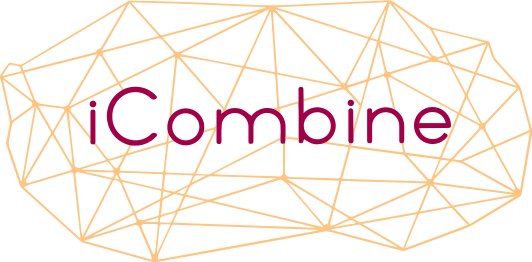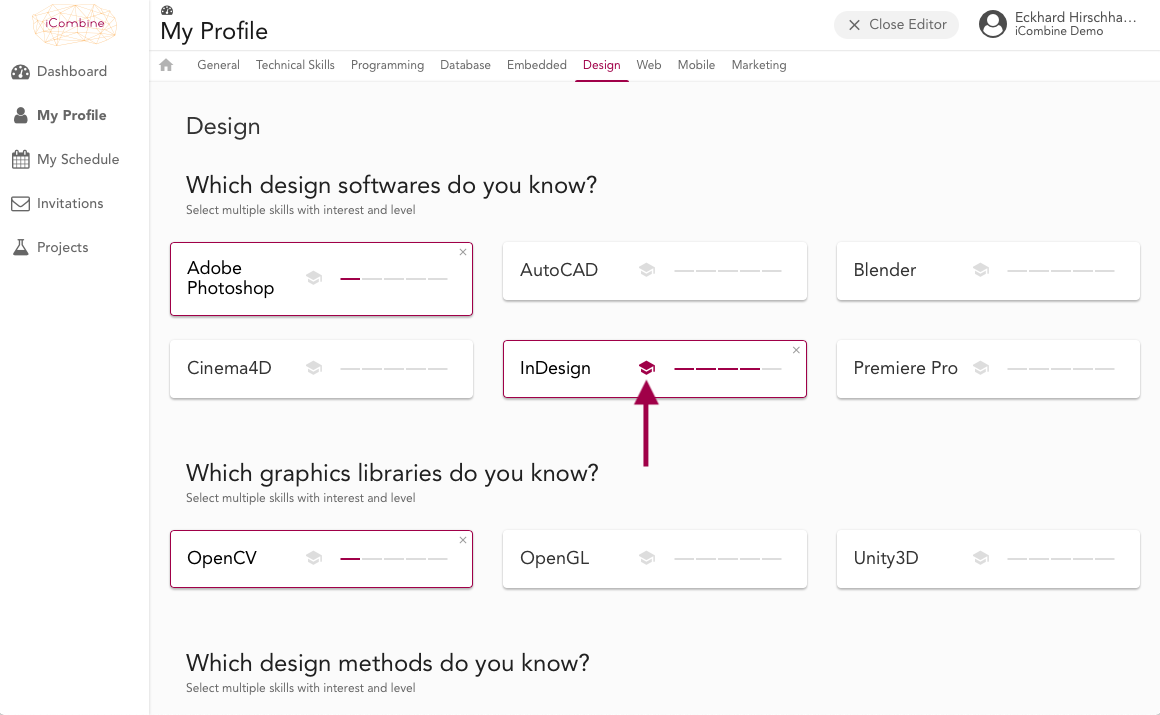Skill Levels
Assessing skills is not an easy task. That is is why we decided to give you guidance on how to pick the right level for yourself or others in your workspace.
1. The Goal of Skill Levels
In iCombine, a competency profile is used to capture the interests, skills, and custom information of all workspace members. Our solution provides better visibility for each individual and creates a common understanding of available skills. In that context, knowing the level of expertise of different people is necessary to make better planning decisions. For example, it is good practice to staff a team of developers with a senior and a junior developer, so that the junior developer can be guided by the senior in day-to-day activities, allowing them to continuously learn on the job.
iCombine allows you to specify your level of competency on a 5-level scale for each skill in your profile. This scale was chosen based on our customer research: too many levels make it hard to assess yourself. Too few levels prohibit a meaningful differentiation between people.
2. What Skill Level should I pick?
Please read the following summaries to understand what each level means. The descriptions for each level were inspired by the Dreyfus model of skill acquisition and its adaptations made by Stan Lester (PDF can be found here).

1 - Novice
Has minimal or textbook knowledge without connecting it to the practice
Needs close supervision or guidance
Has little or no idea of how to deal with complexity
Tends to look at actions in isolation

2 - Advanced Beginner
Has basic knowledge of key aspects of the practice
Straightforward tasks are likely to be done to an acceptable standard
Is able to achieve some steps using his own judgment, but needs supervision for the overall task
Appreciates complex situations, but is only able to achieve partial resolution
Sees actions as a series of steps

3 - Competent
Has good working and background knowledge of the area of practice
Results can be achieved for open tasks, though may lack refinement
Is able to achieve most tasks using own judgment
Copes with complex situations through deliberate analysis and planning
Sees actions at least partly in terms of longer-term goals

4 - Proficient
Depth of understanding of discipline and area of practice
Fully acceptable standards are achieved routinely, and results are also achieved for open tasks
Able to take full responsibility for own work (and that of others where applicable)
Deals with complex situations holistically, confident decision-making
Sees the overall picture and how individual actions fit within it

5 - Expert
Authoritative knowledge of the discipline and deep tacit understanding across areas of practice
Excellence achieved with relative ease
Able to take responsibility for going beyond existing standards and creating own interpretations
Holistic grasp of complex situations. Moves between intuitive and analytical approaches with ease
Sees overall picture and alternative approaches, has a vision of what may be possible
3. Indicate your Interest to Develop a Skill
Keep in mind that the hat next to a skill can be used to indicate that you would like to develop this skill and become better in the future.
4. Customize your Skill Levels
You should see this guide as a baseline for understanding skill levels and start working with iCombine.
A good agile practice is to inspect and adapt on a regular basis. You might find that the definitions of these levels need to be adjusted to the needs of your organization. In this case, we recommend that you create your own definition of the 5 skill levels. Just make sure the levels are clearly distinguished and visible to all workspace members in your organization to guarantee comparable profiles.

